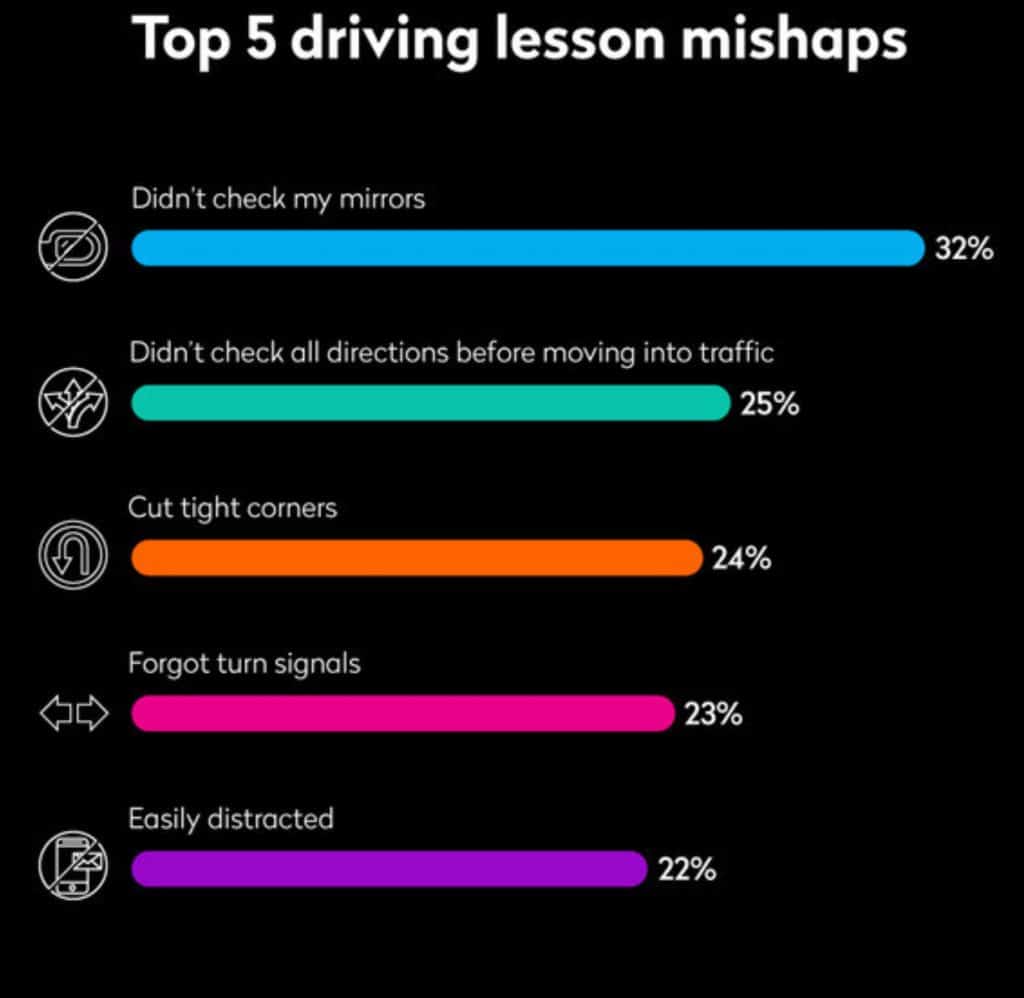
Although it is considered a rite of passage, getting behind the wheel for the first time is not an easy experience. The study discovered that the average driving lesson will consist of the following: five yells to “brake!”, four reaches for the steering wheel by the teacher and six attempts to reach for the nonexistent brake at the instructor’s feet.
- The trickiest skills to pass on to driving students were parallel parking (16%), changing lanes (12%) and merging onto the highway (12%).
- When the average person learned to drive, they had five “close calls” that almost resulted in an accident, though one in five did get in an accident and the same number actually damaged the vehicle.
“Given all of the close calls and actual accidents associated with learning to drive, it’s important to be confident in the safety of your student driver’s vehicle. Be sure to check safety features and vehicle reviews on TrueCar as a part of your shopping process,” said Wendy McMullin, Director of Consumer Insights at TrueCar.
Learning to drive is not only stressful for the student driver; the study found the person teaching also experiences a high level of stress during the experience.
- Over a third (35%) have taught someone to drive and nine in ten found it to be a harrowing experience.
- Of those who found the role of driving instructor extremely stressful, two in five (40%) asked someone else to take over the lessons because it was too much for their nerves.
- Around two-thirds (67%) of those who taught a person to drive confessed it was way scarier to teach driving lessons than to receive them.
“Learning to drive can be a stressful experience for both the student and the teacher, but it’s definitely a memorable one. In fact, almost six in ten drivers over the age of 55 say they still remember the vehicle they learned to drive in,” added McMullin.
Over half (53%) of the participants in the survey confessed they would be afraid to get in a car with their 16-year-old selves today. Learning to drive is clearly a life-long memory and many respondents credit their skills on the road to their instructor.
- Seven in ten respondents think of themselves as good drivers because of who taught them.
- Dads were the most likely people to teach the rules of the road, as 46% credit their fathers as their driving teachers.
- Three in four (76%) are now more appreciative of the person who taught them to drive after getting in the passenger seat with their own student.
TOP DRIVING TEACHERS
|
1. |
Father |
46% |
|
2. |
Friend |
32% |
|
3. |
Sibling |
23% |
|
4. |
Hired driving instructor |
22% |
|
5. |
Mother |
22% |
|
6. |
Neighbor |
15% |
|
7. |
Aunt/uncle |
12% |
|
8. |
Grandparent |
8% |
TOP DRIVING LESSON MISHAPS
|
1. |
Didn’t check my mirrors |
32% |
|
2. |
Didn’t check all directions before moving into traffic |
25% |
|
3. |
Cut tight corners |
24% |
|
4. |
Forgot turn signals |
23% |
|
5. |
Easily distracted |
22% |
|
6. |
Played with the radio/music too much |
22% |
|
7. |
Didn’t brake early enough |
20% |
|
8. |
Drove too fast |
18% |
|
9. |
Sped up too quickly after a stop |
16% |
|
10. |
Stopped too hard |
13% |
|
11. |
Too many tries to parallel park |
11% |
|
12. |
Distracted by my phone |
9% |
|
13. |
Tailgated |
8% |
|
14. |
Drove too slow |
6% |
About TrueCar